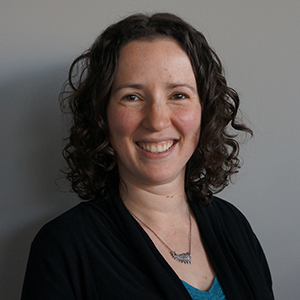
The Institute of Mathematical Statistics has selected Rina Foygel Barber as the winner of this year’s Tweedie New Researcher Award.
Rina is an Assistant Professor in the Department of Statistics at the University of Chicago, since January 2014. In 2012–2013 she was an NSF postdoctoral fellow in the Department of Statistics at Stanford University, supervised by Emmanuel Candès. Before her postdoc, she received her PhD in Statistics at the University of Chicago in 2012, advised by Mathias Drton and Nati Srebro, and a MS in Mathematics at the University of Chicago in 2009. Prior to graduate school, she was a mathematics teacher at the Park School of Baltimore from 2005 to 2007.
Rina lists her research interests as: high-dimensional inference, sparse and low-rank models, and nonconvex optimization, particularly optimization problems arising in medical imaging. Her homepage is https://www.stat.uchicago.edu/~rina/.
The IMS Travel Awards Committee selected Rina “for groundbreaking contributions in high-dimensional statistics, including the identifiability of graphical models, low-rank matrix estimation, and false discovery rate theory. A special mention is made for her role in the development of the knockoff filter for controlled variable selection.”
Rina will present the Tweedie New Researcher Invited Lecture at the IMS New Researchers Conference, held this year at the Johns Hopkins University from July 27–29 (see http://groups.imstat.org/newresearchers/conferences/nrc.html).
On hearing about her award, Rina said, “I feel so honored to be selected for this award. There is so much exciting new research in statistics right now, and it’s been an incredible experience to be a part of the growing research community in high-dimensional statistics and inference. I’m looking forward to getting to meet colleagues and learn about new research directions at the New Researchers Conference this summer.” We asked what she was planning for her lecture. She replied, “I am tentatively thinking that I will talk about distribution-free inference for prediction and classification problems, but the two projects I’m working on in these areas are both still in early stages so this could change!”
Comments on “2017 Tweedie Award winner”